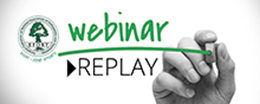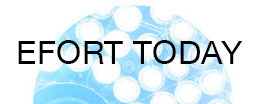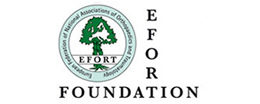EFORT Instructional Course Vienna 2010 – 8-9 October
Shoulder prosthesis: An increasing challenge for quality care
Vienna – The forthcoming EFORT instructional course “Shoulder Prosthesis” will give orthopedics and traumatologists the opportunity to find the right shoulder prosthesis. Dr. Franz Landsiedl (Orthopädisches Spital Speising, Vienna), Chairman of the course, explains why this is unique in Europe and what else we can expect here.
Dr. Landsiedl, nowadays orthopedics and traumatologists are able to attend an unaccountable number of continuing education courses. What is the reason for EFORT organizing its instructional course on shoulder prosthesis in October in Vienna?
F. Landsiedl: Well that’s an easy one to answer. More and more continuing education courses – especially when it comes to the field of surgery and implantation – are in the hands of medical companies. I get an invitation for the presentation of a new implant at least every week. The problem is that these presentations always have a bias. The companies want to sell their product, so they want to give people the best impression. This is the reason we are organizing the “Shoulder Prosthesis” course in Vienna. For the first time, orthopedics and traumatologists can try out and work with six different types of prosthesis. They will be able to make their own judgments, form their own opinion of the implant and then decide what they like about it and what not. This is unique in Europe.
So all the participants can try out and work with the implants?
F. Landsiedl: That’s right. We have our own wet lab in the hospital, where a limited number of people can work on human cadavers. And there’s also going to be the dry lab for the rest of the participants. Furthermore, we will have a special supervisor team that has a lot of experience with shoulder surgeries. They will supervise the implantations and give advice if necessary.
Which prosthesis and operation techniques will we see?
F. Landsiedl: The implants come from the six leading implantation companies in Europe: Zimmer Austria, DePuy, Arthrex, Lima, Plus Orthopaedics and Mathys. We are also going to present different implantation techniques, starting from how to open the shoulder and continuing through to the implantation of hemiprostheses, totalprostheses, inverseprostheses and fractureprostheses.
What developments have there been in the field of shoulder prosthesis in recent years?
F. Landsiedl: The field of shoulder surgery lives through “learning by doing.” One example is that when years ago the first inverseprostheses were developed, we all welcomed them with enthusiasm. But when it turned out that prostheses also had a high risk of complications especially in reoperations, we implanted them less. Two years ago new version was launched, one that gives far better results. It’s a constant development. Dr. Anderl, he of an orthopedics department in Vienna, who is very experienced in the field of shoulder surgery, will give a retrospective of the last ten years of shoulder surgery. He’ll explain how the change from one prosthesis to the other had worked and what advantages and disadvantages it brought. As a consequence doctors can classify themselves better, they know where they stand and to which prosthesis they tend.
That sounds interesting. What other highlights can we expect?
F. Landsiedl: Another highlight will surely be the liveoperations of shoulder implantations that we are going to broadcast directly from the surgery room while a specialist comments.
Apart from the prosthesis you are also going to cover additional themes?
F. Landsiedl: Of course, as you know, the risk of infection after a shoulder surgery increases and the germs get more and more aggressive. That’s why we are also going to give a state of the art explanation of how to treat these infections. We are also going to cover anatomy and biomechanics of the shoulder, and will discuss whether it is better to use total shoulder replacements or hemiprostheses – a matter of dispute that is very often an issue in the AngloAmerican language area. Another topic will be the fracture prosthesis which also addresses traumatologists.
But tell me, the EFORT course cannot only be about extending your knowledge, can it? The program says that there’s going to be a social event on Friday night? So what can we expect there?
F. Landsiedl: (smiles): That is still a secret. But one thing is for sure, there is going to be supreme Austrian wine included. You can certainly look forward to it.
May 2010, Interview with local Organisor, Prim. Univ.Doz. Dr. Franz Landsiedl


